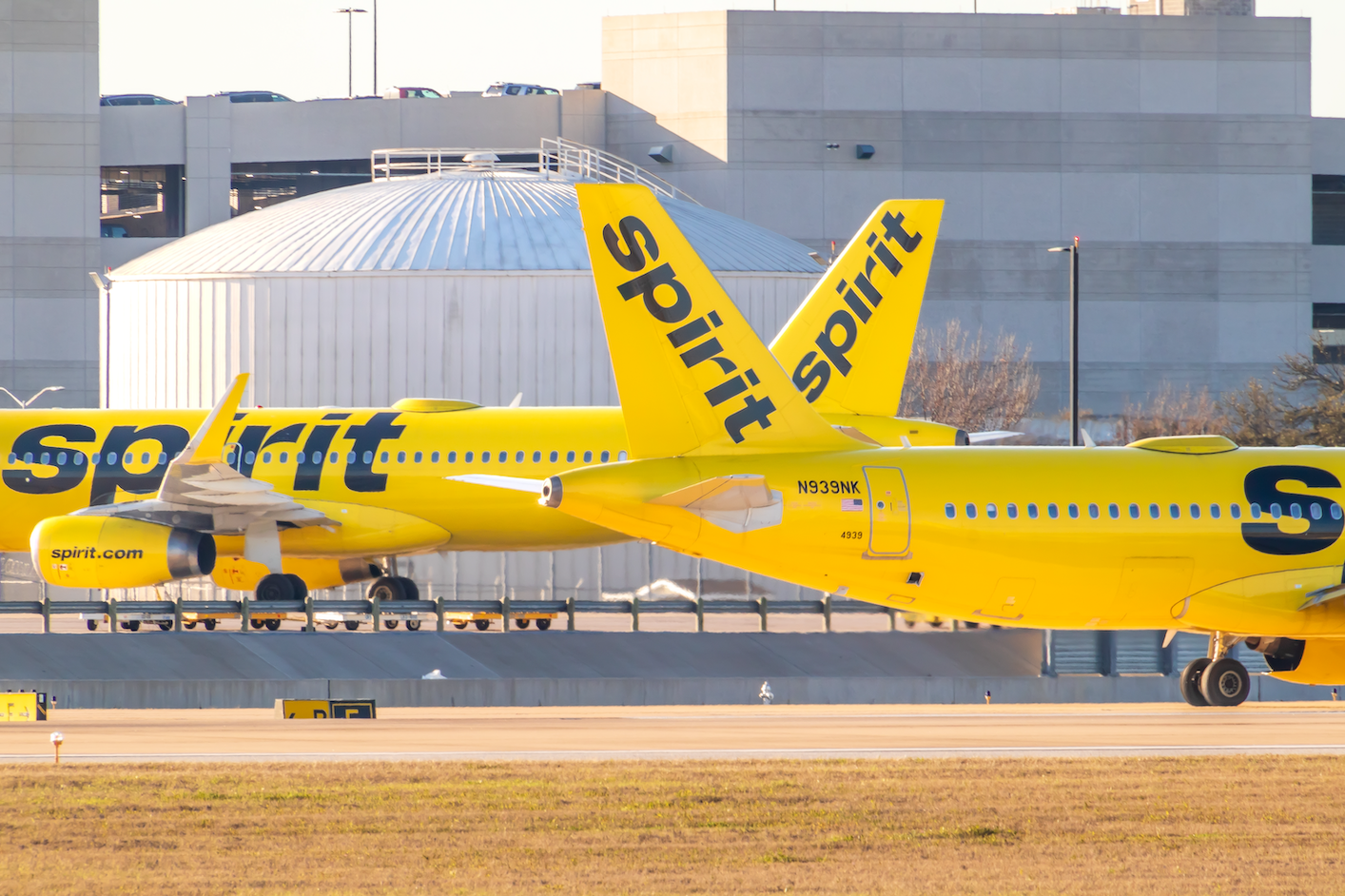Spirit Airlines has rejected Frontier's second proposal to merge the two US low-cost carriers, the airline revealed in an SEC filing on January 29, 2025.
In a letter to Frontier, co-signed by Spirit CEO Ted Christie and chairman of the board of directors Mac Gardner, the company said “we are always, and remain, open to executable ideas and proposals that maximise value for our company”, adding that they share Frontier's view that a “combination of our two companies could create a potent competitor in the marketplace”.
The proposal dated earlier in January 2025, would offer Spirit's bondholders to receive $400 million in new debt, which would be issued by Frontier, as well as 19% of Frontier's common equity post-merger. However, the offer required $350 million in new funding from Spirit's bondholders and required the company to pay a $35 million backstop fee under its court-approved equity rights offering backstop agreement. In addition, the $400 million in of take-back debt was reduced from previous proposal of $580 million, as well as 19% equity being reduced from 26.5%.
The letter stated: “The proposed $400 million in take back debt does, despite our multiple requests, specify any terms or whether it will be a par instrument — and also is far below what is in our reorganisation plan ($840 million) and the $580 million agreed to last August. Will it be worth $200 million, $300 million, $400 million? We still have no way of knowing.”
Spirit filed for bankruptcy in November last year and is working on a deal with bondholders to swap $795 million of its debt for equity as part of its reorganisation.
“Despite the clear guidance we and other have provided… to the proposal's many deficiencies, you have addressed virtually none of them, leaving it impossible for Spirit to effectuate, including because of the demand for $350 million in new funding from our creditors, risky and costly, with no certainty as to either timing or outcome and woefully insufficient financially — particularly when compared to the economic agreement we reached last summer and fall from which Frontier unilaterally walked away,” the letter from Spirit continued. “Nor does it cover our funded debt or suffice to provide a recovery for equity.”
Following the SEC filing from Spirit, Frontier published a press statement maintaining it had crafted a “compelling proposal” to combine the two companies. Frontier argued the transaction would “provide meaningful value” to Spirit's stakeholders, exceeding the value of its standalone restructuring plan.
The statement said that, based on Spirit's bankruptcy court filings, Spirit's standalone plan will “likely result in an unprofitable airline with a high debt load and limited likelihood of success”.
“As investors in the combined airline, Spirit's financial stakeholders could participate in the upside of a stronger low-cost carrier while benefitting from the very significant synergies Frontier expects to achieve by combining the airlines' operations,” Frontier read in its statement.
Frontier chair of the board of directors Bill Franke argued that the proposed merger would provide Spirit the “long-term viability to compete more effectively and enter new markets at scale".
Spirit's letter said the proposal was “far below” terms agreed upon by the two parties in August 2024 on both debt and equity. The $350 million new equity investment was called a “very material funding demand” that Spirit's bondholders “emphatically reject” under the current terms of the proposal.
“That demand alone would be outcome determinative, as we of course have no way of extracting $350 million of cash for you from dozens of third parties," Christie and Gardner continued.
On January 16, 2025, Spirit secured an additional $300 million in financing from its exit revolving credit facility upon exit of its financial restructuring. Spirit said that with this now secured, the combined companies would be “burdened” by the additional debt.
Christie and Gardner concluded that the January 7 terms had not been improved upon since proposed and were “both inadequate and unactionable”, with Spirit maintaining it would proceed with its “extremely efficient standalone reorganisation that will position us well for the future".
In a joint letter from Franke and Frontier CEO Barry Biffle, addressed to Gardner and Christie, they said that Spirit's standalone plan means it will emerge “highly levered, losing money at the operating level" and said Frontier would not pursue a merger with Spirit in this state. “As a result, time is of the essence,” the letter concluded.
Spirit said it would be “happy” to consider a revised proposal from Frontier. In addition, Frontier said it would “stand ready” to negotiate any and all parts of its offer.

